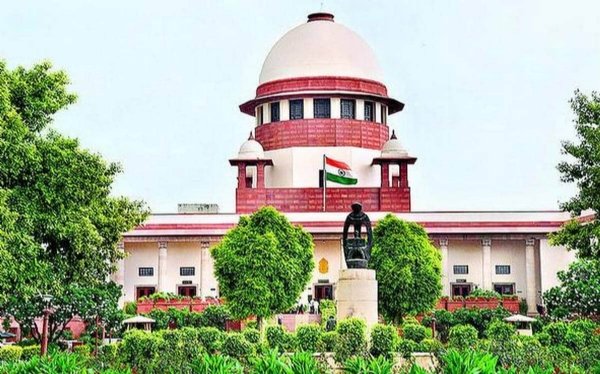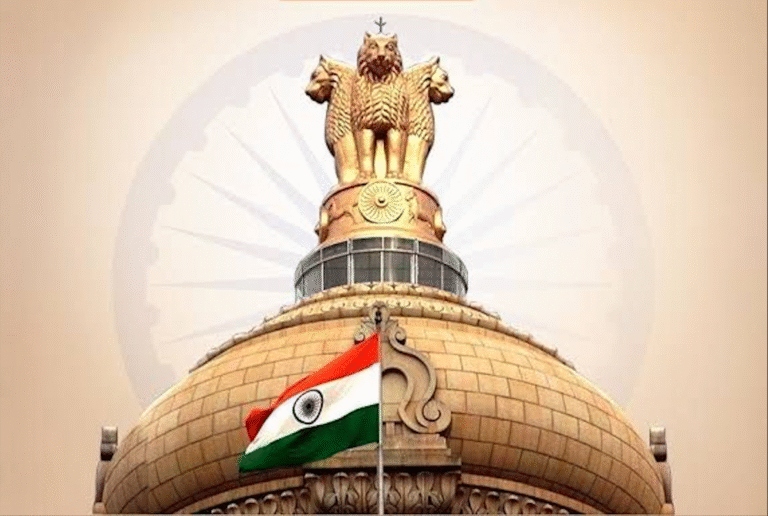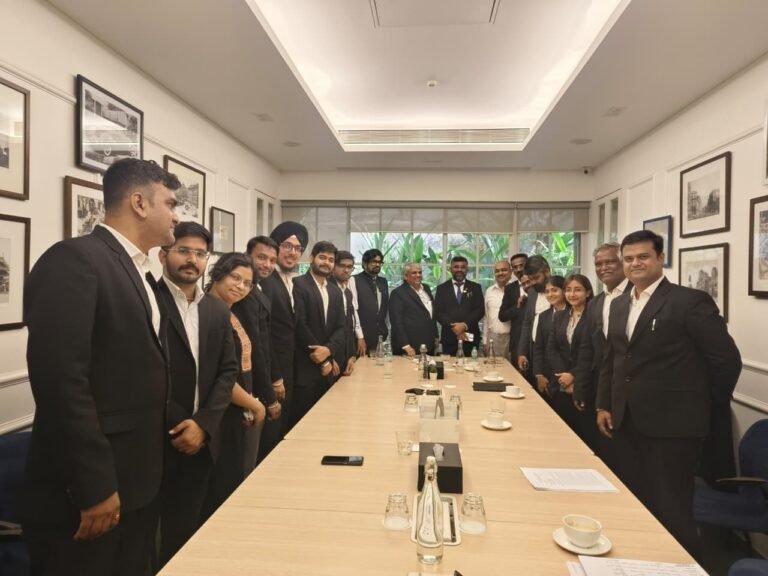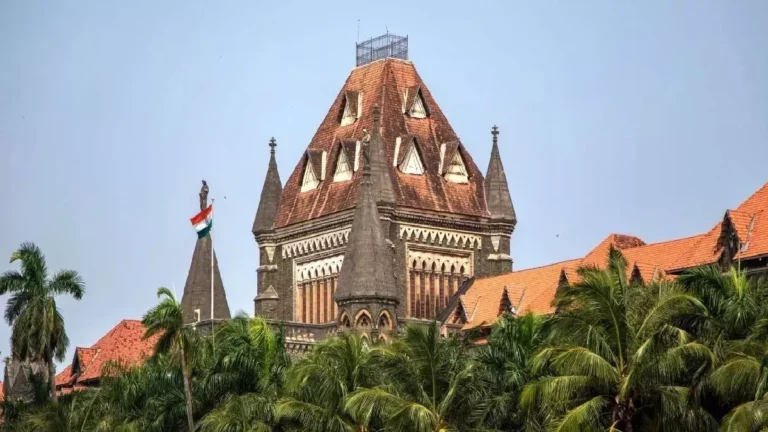Contempt Proceedings and the Fundamental Right to One Appeal Against All Orders, Including Interim Orders
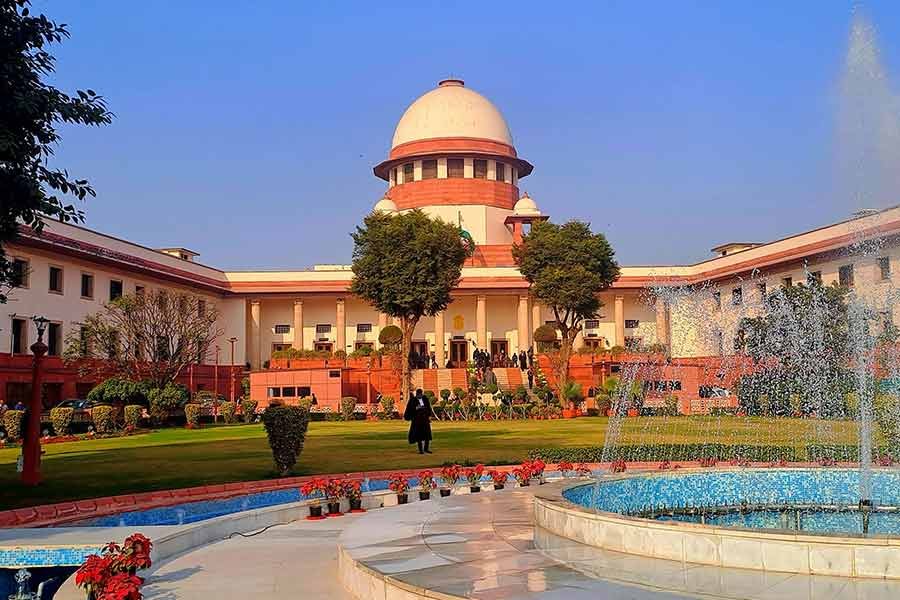
The Supreme Court’s Larger Bench will consider the issue of providing an appellate remedy against contempt orders passed by the Supreme Court in its original jurisdiction, by reference to larger benches. Writ Petitions admitted in In re: Vijay Kurle, (2021) 13 SCC 549 and Prashant Bhushan v. Union of India, 2022 SCC OnLine SC 2222.
It is now a well-settled proposition of law that an appeal under Section 19 of the Contempt of Courts Act, 1971 lies against every judicial order which affects the rights of a party during the pendency of contempt proceedings, and not merely against the final order imposing punishment.
This principle was authoritatively laid down by the Hon’ble Supreme Court in Tamilnad Mercantile Bank Ltd. v. State of Tamil Nadu, (2009) 2 SCC 784, wherein the Court held that any interim or interlocutory order that has civil consequences or affects substantive rights becomes appealable under Section 19.
The above ratio has been expressly affirmed by the Constitution Bench in Anita Kushwaha v. Pushpa Sudan, (2016) 8 SCC 509 (5-J). The Constitution Bench reiterated that the right to appeal is an integral facet of access to justice under Articles 14 and 21.
This article seeks to clarify the prevailing confusion regarding the scope of appellate remedies and procedural rights available to the Alleged contemnors, Advocates and other persons affected by interim contempt orders, and Third parties whose rights are prejudicially impacted by directions issued in contempt jurisdiction— to challenge orders passed by the High Courts or even by the Supreme Court while exercising contempt powers.
There are several authoritative judgments of the Hon’ble Supreme Court which conclusively clarify the stages of contempt proceedings and the scope of orders appealable under Section 19 of the Contempt of Courts Act, 1971.
1) In Tamilnad Mercantile Bank Share Holders Welfare Association Vs S.C.Sekar (2009) 2 SCC 784 it is ruled that when an adverse order is passed in contempt proceedings—even against a non-party who is incidentally affected—such an aggrieved person cannot be left remediless. The Court held that access to justice is not only a human right, but in certain circumstances also forms part of the fundamental rights under Articles 14 and 21. If an interim order was passed wholly without jurisdiction, an appeal would lie there against.
It is ruled as under;
46. We will, however, proceed on the assumption that no appeal was maintainable.
An aggrieved person cannot be left without a remedy. Access to justice is a human right. In certain situations it may also be considered to be a fundamental right. (See Tashi Delek Gaming Solutions Ltd. v. State of Karnataka MANU/SC/2391/2005 : AIR2006SC661 and Arunima Baruah v. Union of India (2007)6SCC120 ).
47. Concededly this Court has the jurisdiction to entertain a special leave petition. When the entire matter is before us this Court in exercise of its jurisdiction under Article 136 read with Article 142 of the Constitution of India may pass such orders which would do complete justice to the parties. [See – T. Vijendradas v. M. Subramanian AIR2008SC563 ].
37. Indisputably, in view of the interim order dated 20-06-2008 the respondents were prejudiced. They were, thus , “persom aggrieved’’. As persons aggrieved they could move the higher court. If an interim order was passed wholly without jurisdiction, an appeal would lie there against.
39. We may repeat that it may be a different matter if the court while passing an order decided some disputes raised before it by the contemnor asking it to drop the proceedings on one ground or the other. Thus, in a given situation, an appeal would be maintainable even against a notice to show cause. …
40. Although we neend not go into the larger question of maintainability of the appeal in view of the fact that the matter had been referred to a three- judge Bench in Dharam Singh vs. Gulzari Lal [SLP (Civil) No. 18852 of 2005 decided on 19-9-2005], but prima facie, in view of the decision of this Court in Purshotam Dass there cannot be any doubt that in a situation where order has been passed adverse to the intrestof the alleged contemnor an appeal would be maintainable particularly where a judgment has been passed by a court which is beyond its jurisdiction . this aspect of the matter has also been considered in R.N. Dey v. Bhagyabati pramanik wherein it was opined(SCC p. 405, para10).
In our view the aforesaid contention for the learned Counsel for the respondents requires to be rejected on the ground that after receipt of the notice, officers concerned tendered unconditional apology and after accepting the same, the High Court rejected the prayer for discharge of the rule issued for contempt action. When the court either suo motu or on a motion or a reference, decides to take action and initiate proceedings for contempt, it assumes jurisdiction to punish for contempt. The exercise of jurisdiction to punish for contempt commences with the initiation of a proceeding for contempt and if the order is passed not discharging the rule issued in contempt proceedings, it would be an order or decision in exercise of its jurisdiction to punish for contempt. Against such order, appeal would be maintainable.
44. It is also relevant to notice that a Division Bench of this Court in Midnapore Peoples’ Coop. Bank Ltd. v. Chunilal Nanda MANU/SC/2810/2006 : 2006CriLJ2903 , opined as under :
If the High Court, for whatsoever reason, decides an issue or makes any direction, relating to the merits of the dispute between the parties, in a contempt proceedings, the aggrieved person is not without remedy. Such an order is open to challenge in an intra-court appeal (if the order was of a learned Single Judge and there is a provision for an intra-court appeal), or by seeking special leave to appeal under Article 136 of the Constitution of India (in other cases).
Interim orders/interlocutory orders passed during the pendency of a case, fall under one or the other of the following categories :
(i) to (iii) …
(iv) Routine orders which are passed to facilitate the progress of the case till its culmination in the final judgment.
(v) Orders which may cause some inconvenience or some prejudice to a party, but which do not finally determine the rights and obligations of the parties.
45.Assuming that an appeal under Section 19 was technically not maintainable, having regard to the fact that the interim injunction was granted till disposal of the contempt application, in our opinion, it was a judgment within the meaning of Clause 15 of the Letters Patent of the Madras High Court.
43. A similar view had been taken in Ashis Chakraborty and Ors. v. Hindustan Lever Sramik Karamchari Congress and Ors. MANU/WB/0341/1991 : (1992)1CALLT486(HC) , by the Calcutta High Court, stating :
We are, however, not oblivious of the fact that Section 19(1) does not merely speak of an appeal lying only against punishment for contempt but uses the expression that an appeal lies from any ‘order or decision’ passed in exercise of the jurisdiction to punish for contempt. As regards the meaning of the expression “any order or decision” we understand a variety of orders and decisions that may be passed by a court in exercise of its jurisdiction to punish for contempt. Our own High Court in 1981 (2) CHN page 97 Ranjit Chatterjee v. Rambadan Choubey held that if the order or decision prejudicially affects a party, he has indeed a right of appeal. If no other order except punishment would have been appealable, there would have ‘ been no necessity of using the words “any order or decision” in the expression “the execution of the punishment or order appeal against” as used in Section 19(2)(a) of the Act. If the scope of appeal Under Section 19 is restricted only to punishment imposed Under Section 12 and nothing beyond, then a person who is ex facie found guilty of contempt Under Section 14 and is detained in custody pending the hearing on the charge of contempt and is refused bail, would have no right of appeal against such refusal of bail pending the decision on the charge of contempt which will amount to deprive the alleged contemner of the right of appeal in such circumstances.
If in case of such an exigency, where he is directed to be released on a particular bond which is found to be much excessive, his right is to be defeated to a large extent and the very purpose of making provision for appeal to give relief in appropriate cases will be lost. ”
2) The ratio laid down in Tamilnad Mercantile Bank Shareholders Welfare Association v. S.C. Sekar, (2009) 2 SCC 784 has been expressly affirmed and upheld by the Constitution Bench of this Hon’ble Court in Anita Kushwaha v. Pushap Sudan, (2016) 8 SCC 509. The Constitution Bench held that the right to effective access to justice, including the right to appeal, is a component of Articles 14 and 21.
3) In the case of Anita Kushwaha v. Pushap Sudan, (2016) 8 SCC 509 it is ruled as under;
“25. In Tamilnad Mercantile Bank Shareholders Welfare Assn. (2) v. S.C. Sekar (2009) 2 SCC 784] , this Court declared that an aggrieved person cannot be left without the remedy and that access to justice is a human right and in certain situations even a fundamental right.”
4) This authoritative reaffirmation by a Constitution Bench elevates the principle laid down in Tamilnad Mercantile Bank to binding constitutional status under Article 141.
5) Consequently, all contrary views expressed by any Bench of three Judges or smaller Benches, which conflict with the ratio of Tamilnad Mercantile Bank (2009) 2 SCC 784 as affirmed in Anita Kushwaha (2016) 8 SCC 509, stand impliedly overruled. Any interpretation that restricts the right of appeal under Section 19, or denies remedies to affected non-parties or alleged contemnors, is constitutionally unsustainable and devoid of precedential value.
6) In R.N. Dey & Others v. Bhagyabati Pramanik & Others (2000) 4 SCC 400 ruled as under
“[…]10. When the Court either suo moto or on a motion or a reference, decides to take action and initiate proceedings for contempt, it assumes jurisdiction to punish for contempt. The exercise of jurisdiction to punish for contempt commences with the initiation of a proceeding for contempt and if the order is passed not discharging the rule issued in contempt proceedings, it would be an order or decision in exercise of its jurisdiction to punish for contempt. Against such order, appeal would be maintainable.”
7) In Modi Telefibres Ltd. & Others v. Sujit Kumar Choudhary & Others (2005) 7 SCC 40 the Apex Court held that an appeal was maintainable against an order where the Appellant had been held guilty of the contempt even though no punishment was imposed upon him, but he by the impugned order was given an opportunity to purge himself of the contempt. The Apex Court held that such order of the learned Single Judge could not be treated to be an interlocutory order and the right of appeal could not be denied to the Appellant.
It is ruled as under;
“4. After hearing the learned counsel for the parties and perusing the impugned order, we find that the Division Bench has committed gross error in overlooking the contents of the order of the learned Single Judge in which the finding has been recorded that the employer has committed contempt by not paying full dues of the workmen under the award.
5. Such an order of the learned Single Judge could not have been treated to be an interlocutory order and the right of appeal denied to the appellant employer merely because the learned Single Judge had adjourned the contempt proceedings to enable the alleged contemnor to purge the contempt or else for deciding the quantum of punishment.
7. In view of the above provisions, the Division Bench was clearly wrong in refusing the right of appeal to the appellants.
8. For the aforesaid reasons, the impugned order dated 29-4-2003 is set aside and the case is sent back to the Division Bench to decide the appeal preferred by the appellants on merits.”
8) Summary of Key Ratios on Appealability and Remedies in Contempt Jurisdiction
i) Full Bench of the Bombay High Court — Right of Appeal Against Order Framing Charge or Refusal to Discharge
The Full Bench of the Bombay High Court in High Court on its own Motion v. Vishwas Bhamburkar, 2022 SCC OnLine Bom 12001, conclusively held that an appeal under Section 19 of the Contempt of Courts Act lies against an order framing charge or refusing to discharge the alleged contemnor.
ii) This view is consistent with the Full Bench decision of the Chhattisgarh High Court in Anil Kumar Dubey v. Pradeep Kumar Shukla, 2017 SCC OnLine Chh 95, which held that once the Court enters the stage of determining guilt, every order affecting substantive rights is appealable.
iii) Appeal Against Excessive Bail Bond or Conditions Under Section 14 of the Contempt of Courts Act.
The law is firmly settled that a right of appeal lies against an order directing excessive bail bond, coercive conditions, or any order affecting liberty at the stage of Section 14 proceedings. This principle flows directly from Tamilnad Mercantile Bank Shareholders Welfare Assn. v. S.C. Sekar, (2009) 2 SCC 784, where the Supreme Court held that access to justice is a human right and sometimes a fundamental right, and therefore any adverse order in contempt proceedings becomes appealable.
9) Absence of Statutory Appeal Against Supreme Court Orders — Remedy Through Recall, Review, and Writ Jurisdiction
10) Where the contempt conviction is recorded by the Supreme Court and no statutory appeal is provided, the Supreme Court has itself exercised recall, review, and writ jurisdiction to set aside wrongful contempt convictions:
11) In National Fertilizers Ltd. v. Tuncay Alankus, (2013) 9 SCC 600, the Hon’ble Supreme Court recalled its own contempt conviction, holding that the earlier order suffered from a patent jurisdictional error and was founded upon an erroneous factual premise. This judgment establishes that even contempt orders passed by the Supreme Court itself can be reopened and annulled where jurisdiction is lacking.
12) Similarly, in M.S. Ahlawat v. State of Haryana, (2000) 1 SCC 278, a Three-Judge Bench emphasized that where a litigant has suffered miscarriage of justice due to the Supreme Court’s exercise of contempt jurisdiction without authority of law or without adherence to due procedure, resulting in incarceration and loss of liberty, the Court has no option but to examine and correct the error. In this case, the wrongful conviction imposed by a Two-Judge Bench was set aside in writ jurisdiction by a Larger Bench, thereby reaffirming that jurisdictional defects render contempt convictions vulnerable to correction even by extraordinary remedies.
13) Furthermore, the Constitution Bench in Supreme Court Bar Association v. Union of India, (1998) 4 SCC 409, categorically set aside the order of a Three-Judge Bench passed against an advocate in contempt proceedings, holding that the order was wholly without jurisdiction. The judgment underscores that contempt orders passed in excess of jurisdiction or in violation of established procedure cannot be sustained, even if passed by larger benches, and must be reversed to uphold constitutional guarantees of fairness, liberty, and due process.
14) Recent Historic Development — Supreme Court Admits Writ Petitions Seeking Right to Appeal Against Supreme Court’s Own Contempt Convictions
In a transformative development, the Supreme Court in In re: Vijay Kurle, (2021) 13 SCC 549, admitted writ petitions filed by Adv. Prashant Bhushan, Adv. Vijay Kurle, Adv. Nilesh Ojha, and Rashid Khan Pathan, all seeking recognition of a right to one appeal against convictions rendered by the Supreme Court itself in contempt jurisdiction.
15) For the first time in the history of the Supreme Court, a larger bench stayed the sentence imposed in contempt proceedings to protect the fundamental right to appeal. The issue now pending before the larger bench is of constitutional significance, concerning whether denial of an appellate remedy violates Articles 14, 19, and 21. This proceeding is expected to define the future framework of appellate remedies in contempt cases, particularly those where the Supreme Court acts as the court of first instance.
17) Constitutional and International Law Basis for the Fundamental Right to One Appeal Against a Contempt Conviction Rendered by the Supreme Court in Its Original Jurisdiction :-
The issues involved in the writ petitions pending before the Larger Bench of the Hon’ble Supreme Court raise questions of grave constitutional importance, namely the violation of the fundamental right to one appeal, guaranteed under Article 21 of the Constitution of India and Article 14(5) of the International Covenant on Civil and Political Rights (ICCPR).
18) Article 14(5) of the ICCPR — International Guarantee of Appellate Remedy
Article 14(5) of the ICCPR mandates as follows:
“5. Everyone convicted of a crime shall have the right to his conviction and sentence being reviewed by a higher tribunal according to law.”
19) These writ petitions have been admitted by a Larger Bench of the Supreme Court in Prashant Bhushan v. Union of India, 2022 SCC OnLine SC 2222, thereby acknowledging that the right to an appellate review in contempt cases presents a substantial constitutional question.
20) ICCPR Rights Are Constitutionally Protected — Binding Precedents of the Supreme Court – A Nine-Judge Bench in K.S. Puttaswamy v. Union of India, (2017) 10 SCC 1, and the judgment in Ram Deo Chauhan v. Bani Kanta Das, (2010) 14 SCC 209, have emphatically ruled that the provisions of ICCPR and other international covenants are enforceable through Part III of the Constitution, as they are part of the constitutional guarantee of dignity, fairness, and due process.
21) These decisions establish that any violation of ICCPR rights—such as the right to an appeal—constitutes a violation of fundamental rights under Articles 14 and 21.
22) Fundamental Right to One Appeal Under Article 21 — Settled Law :- In Dilip S. Dahanukar v. Kotak Mahindra Co. Ltd., (2007) 6 SCC 528, the Supreme Court held that the right to one appeal is an essential component of Article 21, and that international covenants also recognize and reinforce this right. The Court ruled that denial of appellate remedy amounts to denial of fair procedure.
23) Constitution bench of UK Supreme Court — Right to Appeal Against Contempt Conviction by Supreme Court lies to larger benches of the Supreme Court. :- In a recent and highly persuasive decision, the Five-Judge Bench of the UK Supreme Court in Her Majesty’s Attorney General v. Crossland, [2021] UKSC 58, held that a person convicted of contempt by the Supreme Court in its original jurisdiction is entitled to one appeal before a larger bench. This aligns with global standards of due process and the principles under Article 14(5) of the ICCPR.
24) United Nations Human Rights Committee Precedents — International Condemnation of Non-Appealable Supreme Court Contempt Convictions :- A 17-Judge Bench of the UN Human Rights Committee, comprising inter alia Justice P.N. Bhagwati (former CJI of India), in Anthony Michael Emmanuel Fernando v. Sri Lanka, 2005 SCC OnLine HRC 22, strongly condemned the practice of imprisonment for contempt without appellate remedy, declaring it:- arbitrary, draconian, inappropriate, and in violation of Article 9 of the ICCPR.
25) The Committee, in several cases—including:
- Luis Hens Serena v. Spain, 2008 SCC OnLine HRC 20,
- Chota Ratiani v. Georgia, 2005 SCC OnLine HRC 25, paras 11.3 & 12,
- Luis Olivero Capellades v. Spain, 2006 SCC OnLine HRC 42, paras 7 & 8—
directed States to provide compensation and to ensure appellate remedies even against contempt convictions passed by apex courts in original jurisdiction.
26) Supreme Court’s Power to Supplement the Contempt of Courts Act :- The Constitution Bench in Sahara India Real Estate Corpn. Ltd. v. SEBI, (2012) 10 SCC 603, held that the Supreme Court may issue directions to supplement the provisions of the Contempt of Courts Act, 1971, provided that such directions do not contradict any express prohibition in the statute. Thus, the Supreme Court is constitutionally empowered to create or recognize appellate remedies where the statute is silent.
27) Shawcross Committee Observations – Universal Rule of Appeal Against Imprisonment :- The Sanyal Committee Report (Annex P-1), which formed the basis of the Contempt of Courts Act, 1971, relied on the Shawcross Committee’s principle:
“In every system of law of any civilized State, there is always a right of appeal against any sentence of imprisonment. There is no justification whatsoever for making any exception to this universally recognised principle in the case of sentences for contempt.”
28) This shows legislative recognition of the international norm that imprisonment without an appellate remedy is inconsistent with rule of law.
29) Contempt Proceedings Are Criminal in Nature :- As laid down by the Three-Judge Bench in Hari Das v. State of W.B., (1964) 7 SCR 237, contempt proceedings constitute criminal offences under Section 41 of the Indian Penal Code (old IPC). Therefore, contempt convictions must follow all constitutional safeguards of criminal jurisprudence, including right to appeal.
30) Contempt Orders Must Be Treated as Orders in Criminal Cases
It is a settled principle of law that orders in contempt proceedings must be treated as orders in criminal cases, and appeals must be adjudicated in accordance with well-known principles governing criminal appeals.
The alleged contemnor is entitled to all protections available to an accused, including the guarantee under Article 20(3) against self-incrimination.
This is supported by:
- Khushi Ram v. Sheo Vati, (1953) 1 SCC 726 (4-J);
- Andre Paul Terence Ambard v. Attorney-General of Trinidad and Tobago, 1936 SCC OnLine PC 15
- Sukhdev Singh Sodhi v. Chief Justice S. Teja Singh, 1954 SCR 454
- Sahdeo v. State of U.P., (2010) 3 SCC 705
- P. Mohanraj v. Shah Bros. Ispat (P) Ltd., (2021) 6 SCC 258
- Clough Engineering Ltd. v. Oil and Natural Gas Corporation, 2009 SCC OnLine Bom 372;
- Bloom v. State of Illinois, 1968 SCC OnLine US SC 93;
